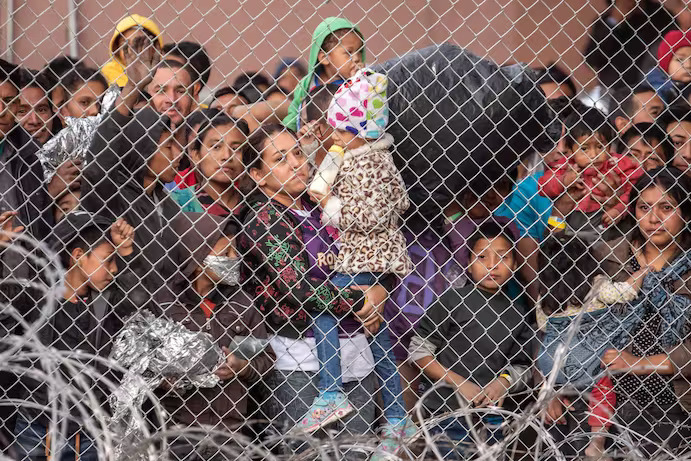In the first two weeks of President Donald Trump’s administration, U.S. Immigration and Customs Enforcement (ICE) has deported nearly 6,000 illegal immigrants, with an average of 370-400 deportations per day. According to a senior White House official, the pace of deportations has been rapid, including a single day on which ICE deported 512 individuals.
ICE’s efforts have focused on migrants with outstanding immigration violations, and nearly 73% of those deported had criminal convictions or pending charges, including serious crimes like homicide, sexual offenses against minors, and drug trafficking. In addition, ICE arrested six members of the Tren de Aragua (TDA) cartel and other high-threat individuals with gang affiliations.
The Trump administration has made it clear that its deportation efforts are just beginning, with close to 9,000 immigration violators already apprehended since the president’s inauguration. Homeland Security Secretary Kristi Noem posted images of deported migrants, highlighting the ongoing efforts to hold criminal aliens accountable. These detainees, some of whom are linked to violent criminal organizations, will now be held at Guantanamo Bay, a move described by Noem as aimed at holding “the worst of the worst.”
In an Oval Office statement, President Trump celebrated the crackdown on criminal aliens, emphasizing the severity of their crimes and reiterating his goal to remove them from the U.S. “If I can get them out of the country and into some other country where they’re glad to have them, it’s better than keeping them in our prisons,” Trump said.
These deportations include individuals from a range of countries, with ICE agents conducting operations across the U.S., from San Diego to New York. Some of the most dangerous criminals arrested include Aldo Castaneda Aguilar, convicted of homicide by vehicle, and Cesar Augusto Delgado Sanchez, a Nicaraguan citizen convicted of sexual assault.
To aid in deportations, the administration has increased military support, with up to 380 service members assisting in operations at Guantanamo Bay. This marks a shift in how the U.S. handles deported criminals, as Guantanamo Bay has not been used for this purpose since the 1990s.

